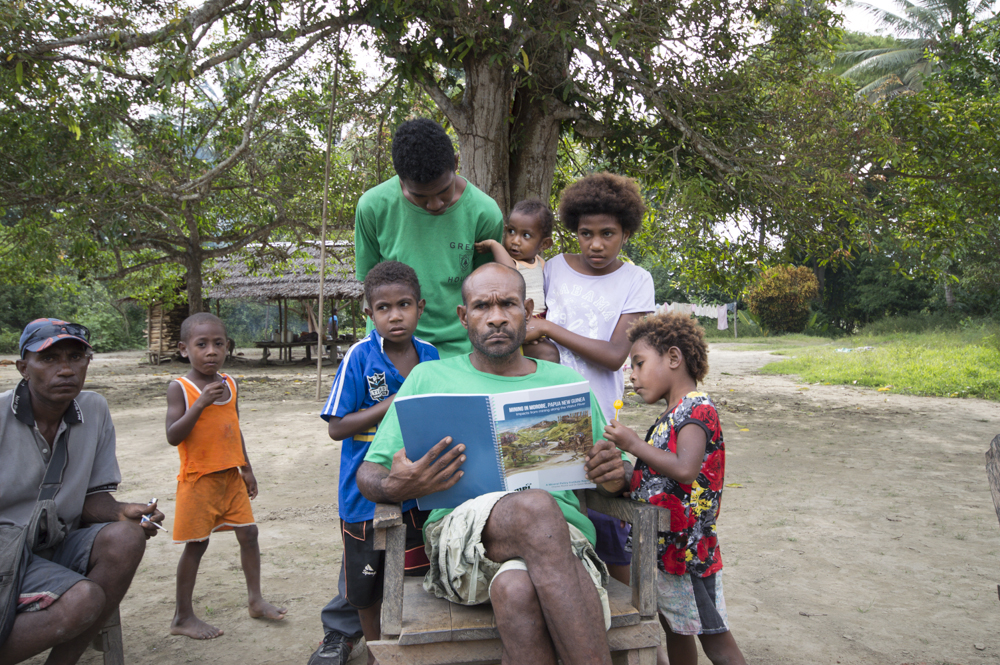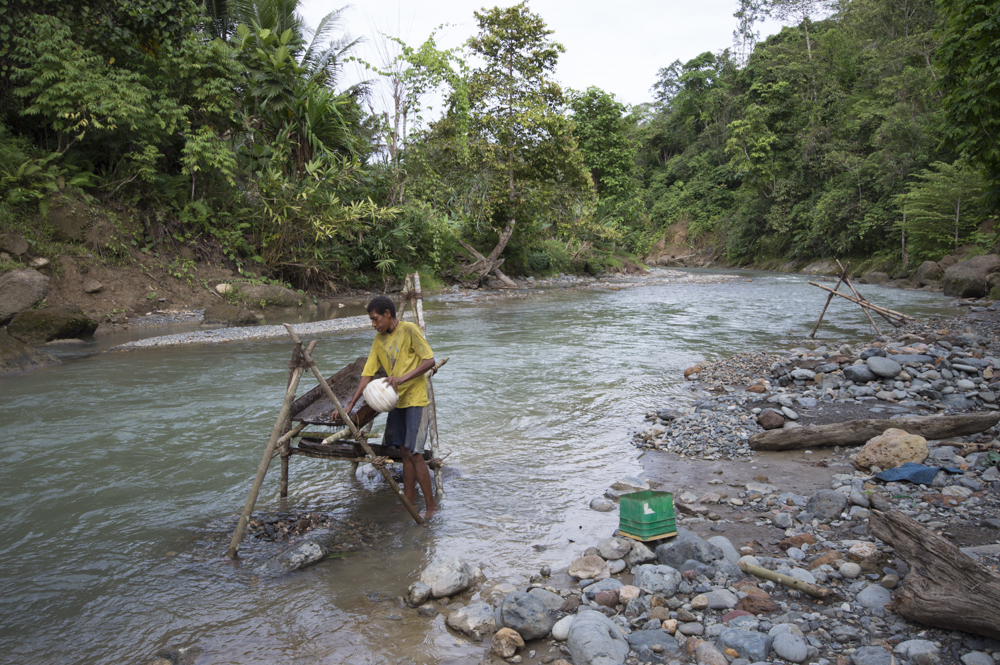Morobe Report
Morobe Report
Charles Roche, MPI Executive Director
There can be no doubt that the Hidden Valley Gold- Silver mine has caused environmental impacts in excess of permit and approval conditions, mainly due to poor environmental management practices during construction that resulted in significant and ongoing sedimentation of the Watut River. These impacts from Hidden Valley have added to the historical and ongoing environmental impacts from both the Wau/Bulolo Goldfields and more recent workings in the Watut River area. While not at the same scale of impacts from mine-sites elsewhere in PNG, mining related problems in Morobe need to be examined and discussed as part of the national mining industry. An industry that has yet to effectively respond to current impacts, mining legacies and changing community expectations. 
The scale of problems from the Hidden Valley mine-site have been exacerbated by the lack of transparency about the impacts and the response from operators and regulators. A lack of detail that leaves communities and stakeholders unsure of the source of and management response to sedimentation and other mining impacts. To date, although the MMJV have conducted a range of studies on the Watut River, many of their reports and plans are still not publicly available – nor were they all made available to the PNG Government for the SMEC Report. Such secrecy and lack of transparency significantly hampers accurate scientific interpretation and only worsens the community perception of the impacts from the project to date.
What is clear is that by commissioning an independent review, DEC were able to quantify the level and number of breaches at Hidden Valley, thereby increasing awareness and public scrutiny. Ongoing assessment of impacts and management response by DEC or other agencies would add significantly to our understanding of the project and increase community confidence in both the operation and regulation of the Hidden Valley mine-site and potentially, the development of Wafi- Golpu. Furthermore, future activities in the Watut River area should be guided by a commitment to maintaining a social license to operate based upon a free prior and informed consent process. The involvement of the community through community advisory councils or similar structure would capture community concerns, guide operations and inform regulatory agencies.
The future of mining in Morobe is uncertain. In some ways MMJV’s operations are an improvement on existing industry practice, as evidenced by the use of a tailings dam rather than riverine disposal. On the other hand, MMJV is operating under increased scrutiny and community expectation and needs to implement substantial improvements to existing industry practices if it is to obtain a social license to operate. Regulators also have a vital role in managing the current and potential mining industry in Morobe if it is to contribute to genuine, sustainable development rather than overwhelm communities, agencies, infrastructure and the environment.
 While longer-term initiatives that support consultation and consent processes are being developed and implemented, more immediate action could be taken to improve the situation on the ground. Communities should consider the findings of this report and whether a complaint should be lodged to either the PNG or Morobe Governments, or under the OCED Guidelines or made to the signatories to the Equator Principles. Local, Provincial and National Governments could heed the advice of ESAP, which identified the need for further capacity, independent monitoring and increased data collection and site visits by government bodies.
While longer-term initiatives that support consultation and consent processes are being developed and implemented, more immediate action could be taken to improve the situation on the ground. Communities should consider the findings of this report and whether a complaint should be lodged to either the PNG or Morobe Governments, or under the OCED Guidelines or made to the signatories to the Equator Principles. Local, Provincial and National Governments could heed the advice of ESAP, which identified the need for further capacity, independent monitoring and increased data collection and site visits by government bodies.
MMJV and its owners, Newcrest and Harmony Gold should act immediately to: (1) address the lack of transparency by making all relevant data publicly available; (2) accurately report on environment and social issues relating to their mining operations, especially in their CSR Reporting; (3) publicly identify a board or decision makers for MMJV; (4) adopt, publish and adhere to suitable guiding policies; (5) implement an effective grievance mechanism; (6) respond to failings relating to OCED Guidelines and Equator Principles; (7) and MMJV owners should appoint independent directors at board level with community and environmental expertise to assist in addressing current inadequacies and lead proactive reform.
Finally, it is hoped that by drawing the facts together in a paired documentary and report, that the existing and potential impacts from mining will be recognised and the communities call for a new development paradigm will be respected and supported.